Foraging Is Easy — Plus It Saves Money and the Environment, Says Eco-Activist: 'Food Is Everywhere!'
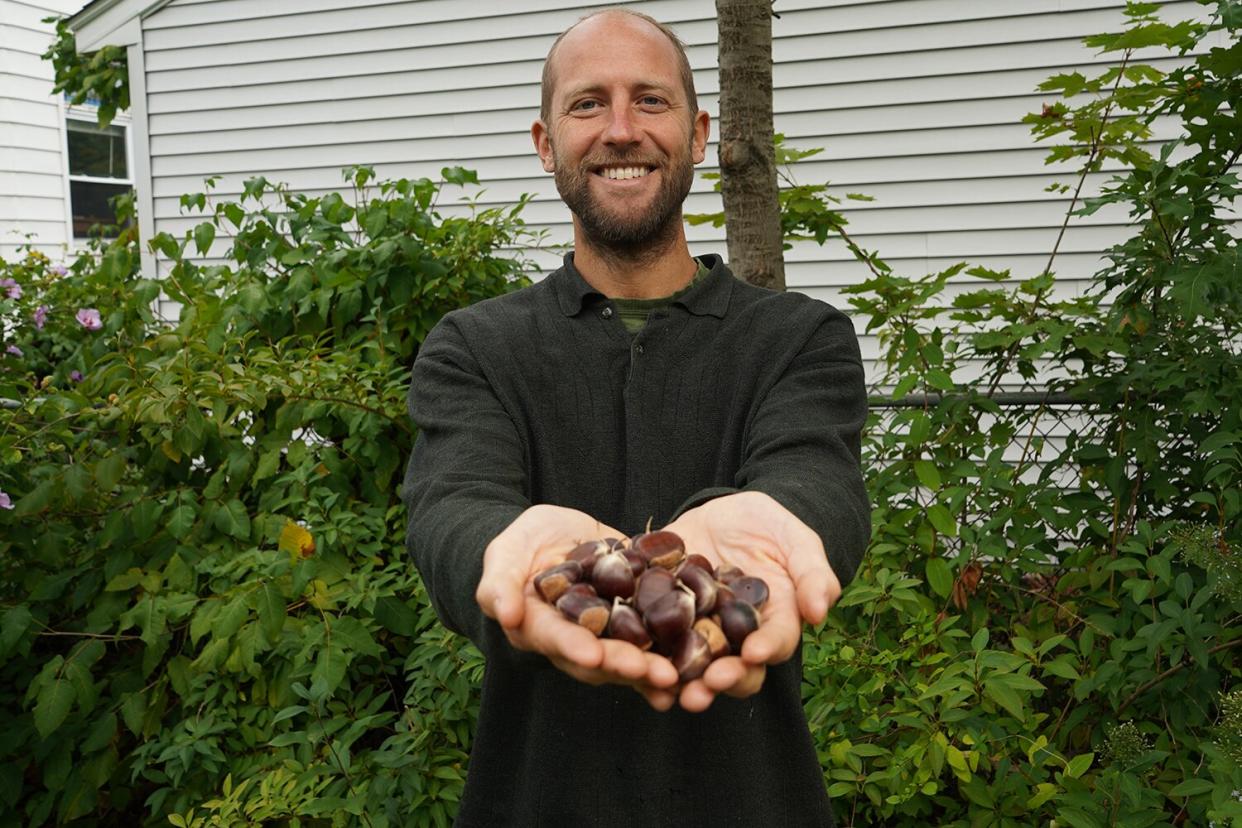
RobGreenfield.org
On Sunday afternoon, Rob Greenfield felt like having a snack. However, instead of grabbing chips or a sandwich from a local deli, he reached into the small bag of Ginkgo nuts he found in a park in Cincinnati the week before and then roasted.
"They're really good," the 36-year-old eco-activist told PEOPLE on a recent October afternoon at The Yale Farm in Connecticut, which is part of Yale University's Food Sustainability Program.
Roasting the Gingko nut is imperative since "eating them raw is toxic," explained Greenfield.
Minutes later, he bent down and picked a dandelion flower growing in the grass – and ate it. "Dandelions are really nutritious," he said.
Foraging can be fun, but the number-one rule to avoid getting sick or dying, he stressed, is knowing exactly what you are about to eat. Most foraging-related illnesses or deaths come when people "just pick up random things and eat them," he said. "That's not foraging.
"Only eat something you've foraged if you're a hundred percent sure of what it is," he said, encouraging people to visit his Find a Forager database on his website to learn more.
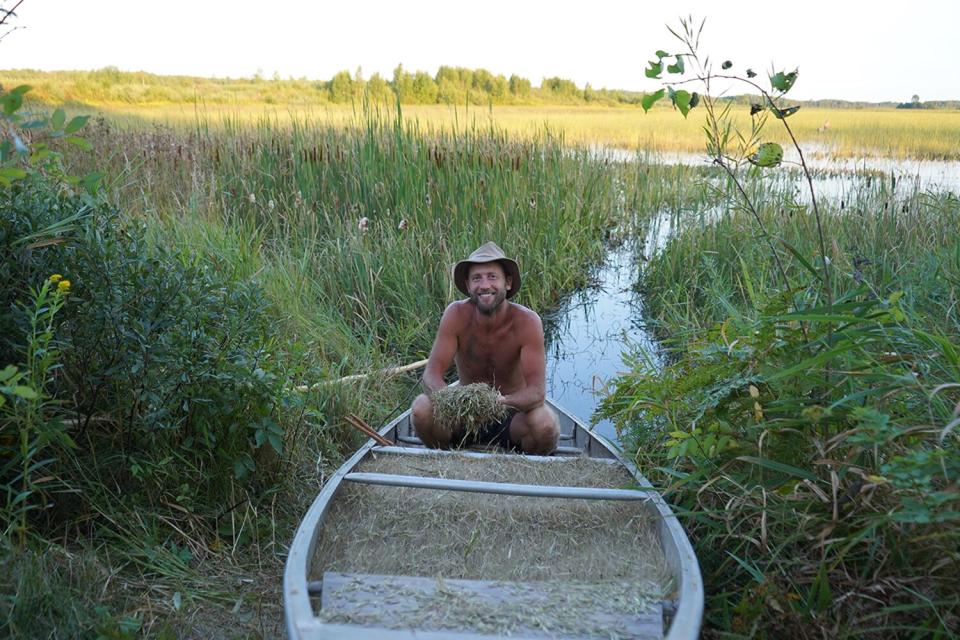
RobGreenfield.org Rob Greenfield harvesting wild rice.
Never miss a story — sign up for PEOPLE's free daily newsletter to stay up-to-date on the best of what PEOPLE has to offer, from juicy celebrity news to compelling human interest stories.
The Wisconsin native is well known for going to extremes with thought-provoking and attention-getting stunts.
Last spring, he donned a plastic suit filled with all the trash he discarded for a month to show people how much waste we each produce — and in 2019, he spent a year taking a break from "Big Ag," only eating food he foraged and grew in his own garden.
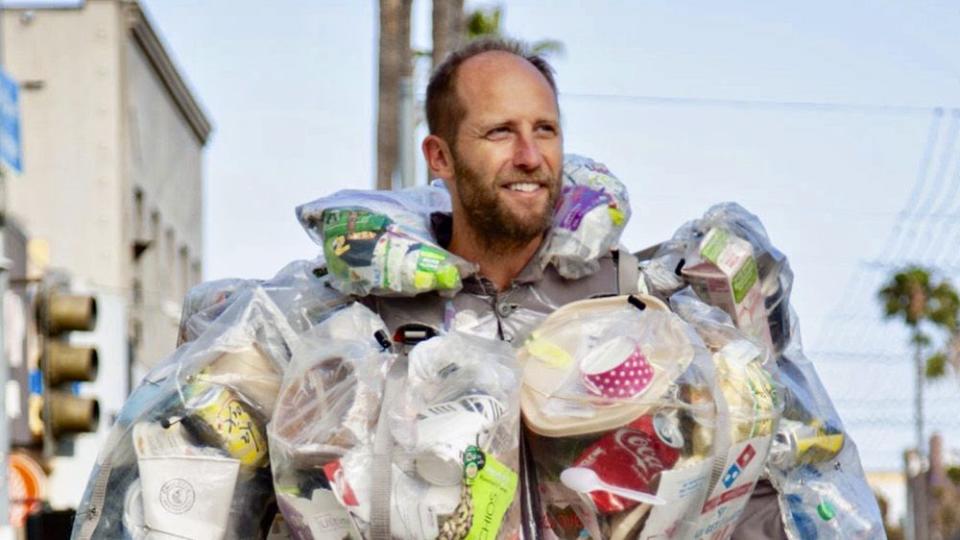
Rob Greenfield Rob Greenfield
RELATED: Eco Activist Spent 30 Days Wearing His Trash - And By the End of the Month It Weighed 72 Lbs.
Now he's at it again, this time traveling the country on a quest to eat only food he's foraged.
Since Sept. 9, "I've been eating a hundred percent from the land," he told PEOPLE before the "Food Freedom Discussion" he gave at the Yale Farm as well as an "Introduction to Foraging Walk and Talk."
"In the last three weeks I've foraged every single bite - all my calories, fat, protein, all the fruits and all the greens, down to my salt, which I just harvested at a beach outside of Boston," he said.
For the last 18 days I have been eating off the land!
Every. Single. Bite.
Food is growing EVERYWHERE!https://t.co/MgLA5FgTEx#Foraging #UrbanForaging #Nature pic.twitter.com/yUt43EBXFl— Rob Greenfield (@RobJGreenfield) September 28, 2022
So far he's hosted educational events in cities including Cincinnati, Providence, R.I.,and New York City, where he foraged for food in Central Park. From there he's heading to Philadelphia and Washington, D.C.
Why is he doing this, when he could be sitting down at one of New Haven's famous restaurants such as Pepe's or Sally's, which serves some of the best pizza in the country?
"I want to show people just how insecure our food system is," he said.
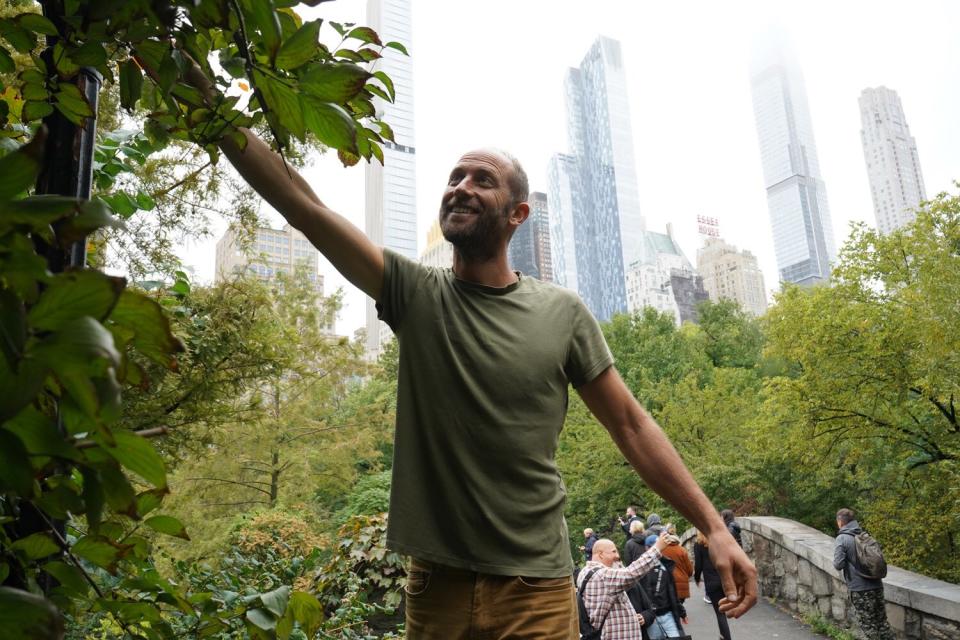
www.RobGreenfield.org Rob Greenfield
RELATED: Oceans Have Saved Us from the Worst of Climate Change So Far — Now We Must Save the Oceans
Since the pandemic, he said, "people have been seeing that at any point, we might not have all the food that we need on our shelves."
So he wanted to teach people how to live off the land, if they want to – or need to. "The current food system that we're getting most of our food from is destroying the earth - and it's destroying our own health," he said.
On the other hand, foraged food is extremely nutrient-dense. "By foraging, you can eat the tastiest foods on earth that you can't even find in most grocery stores or restaurants," he said. "They're also the tastiest and nutritious because they are growing until the moment that you pick them.
"Most of our food in the grocery stores and restaurants has been designed to be shipped long distances, so they're actually selected for durability rather than flavor and nutrition," he added.
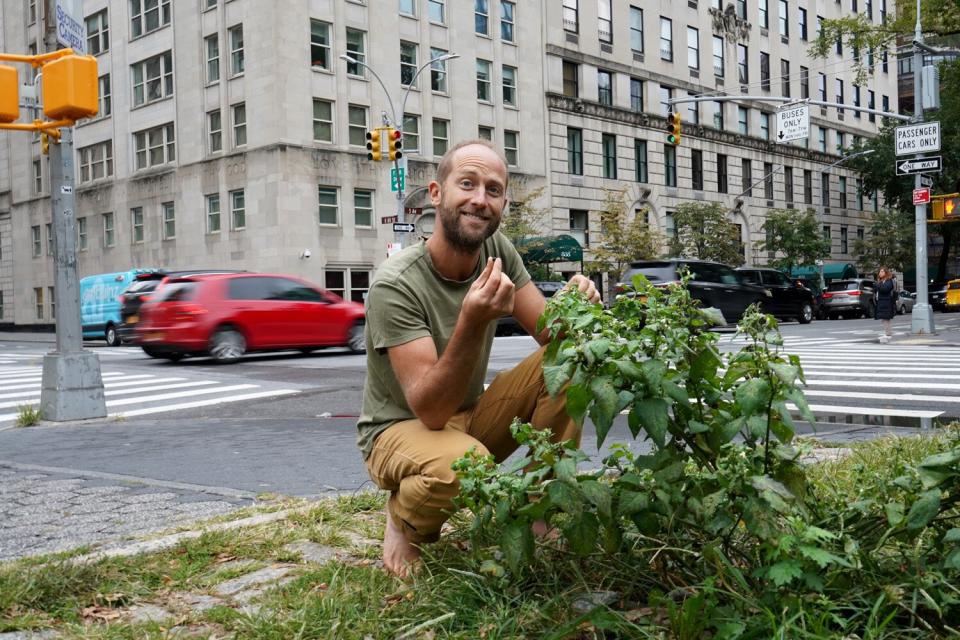
www.RobGreenfield.org Rob Greenfield
'Hen of the Woods' for Dinner
Greenfield has found many new foods in each place he's visited but by far, the city that yielded the most foraged food was in Boston, he said.
"Everywhere I went, there was so much food that I wanted to harvest," he said. "I've never been to a better urban foraging city than Boston."
The main foods he found there were berries from the Kousa dogwood, "which is a new one for me," he said. "They're just this delicious fruit that nobody knows is edible."
He also harvested "two big hen of the woods," huge Maitake mushrooms, which are good for everything from fighting cancer to building strong bones, he said — plus, they're "also delicious."
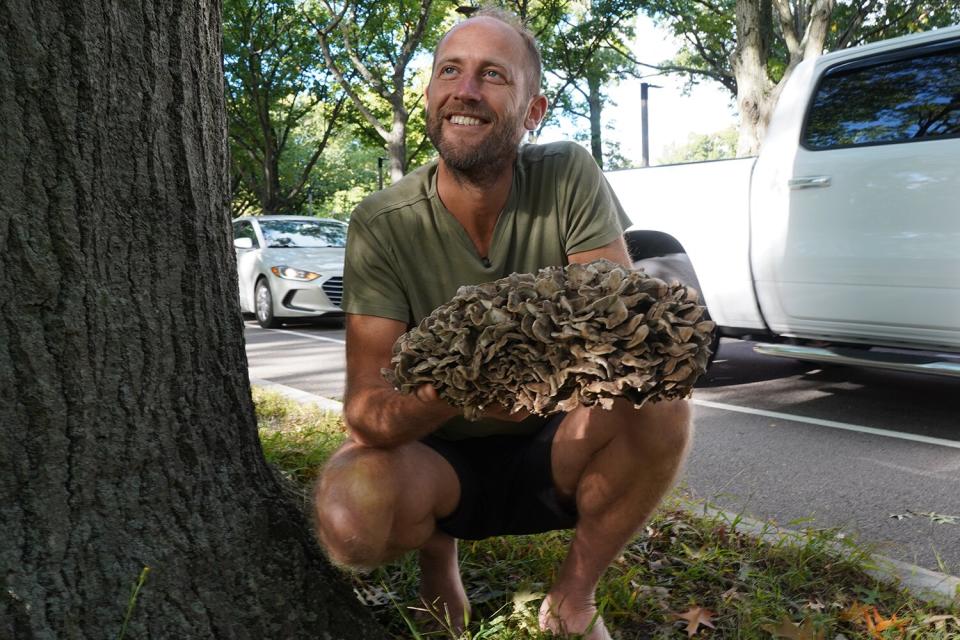
RobGreenfield.org
For most of his journey, he has eaten wild rice he harvested from northern Wisconsin, where he started his all-natural gastronomic journey, boiling it just like you would any other rice.
In addition to fish, he also eats venison, which he said he doesn't get from hunting.
"I eat venison from deer that have been hit by cars, which sounds crazy to a lot of people," he remarked. "It's amazing how many deer are hit, and a lot of them are still perfectly good."
"Foraging is good for the planet and good for us, because you can find so many plants with incredible nutrients," he said. The best part? "Food is everywhere," he added.
To learn more about foraging for food and medicine, check out his new book, Food Freedom!

